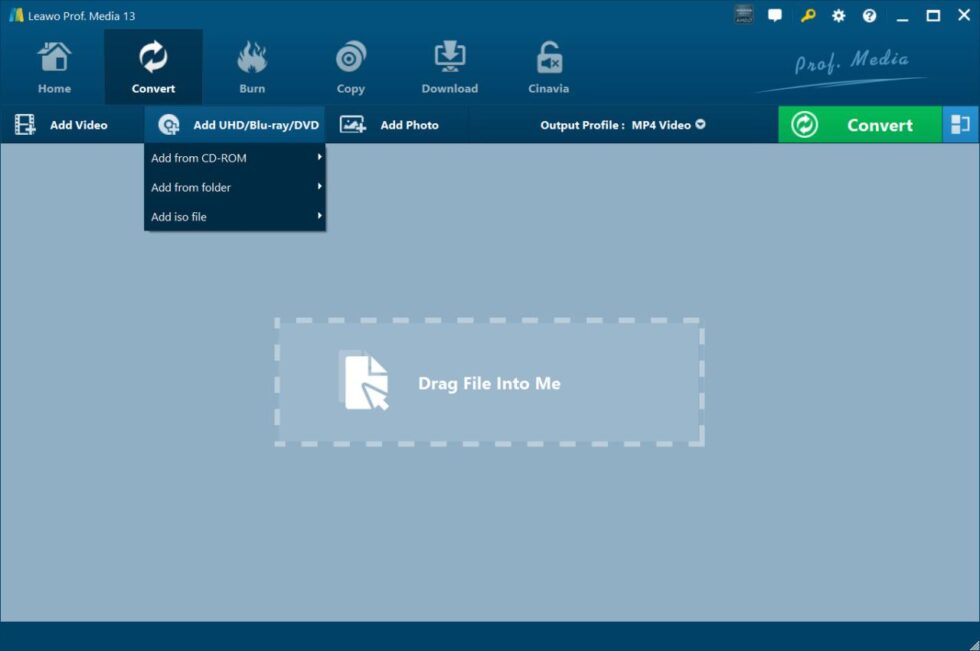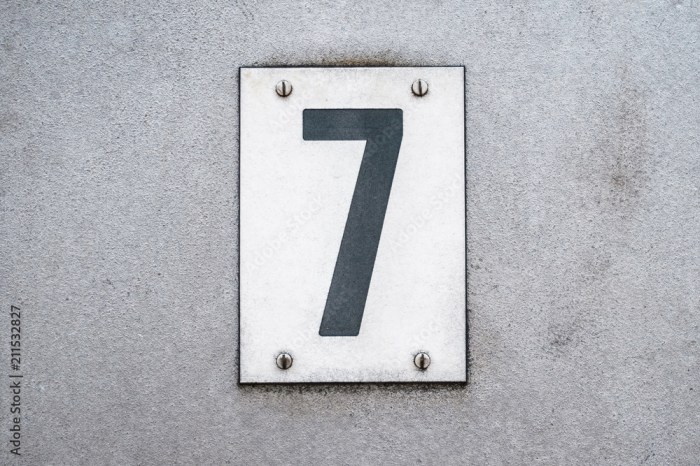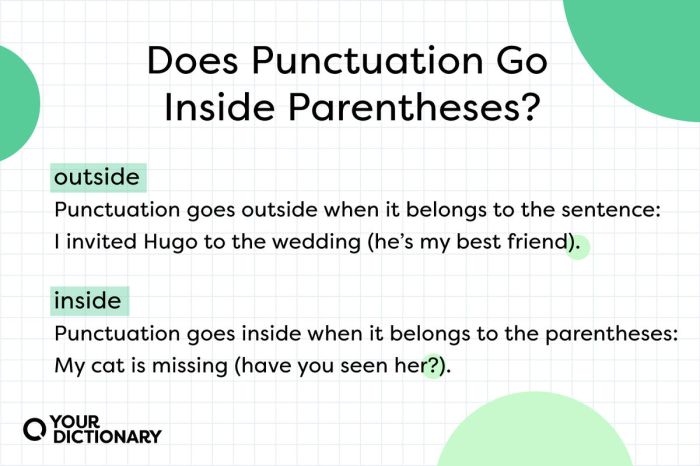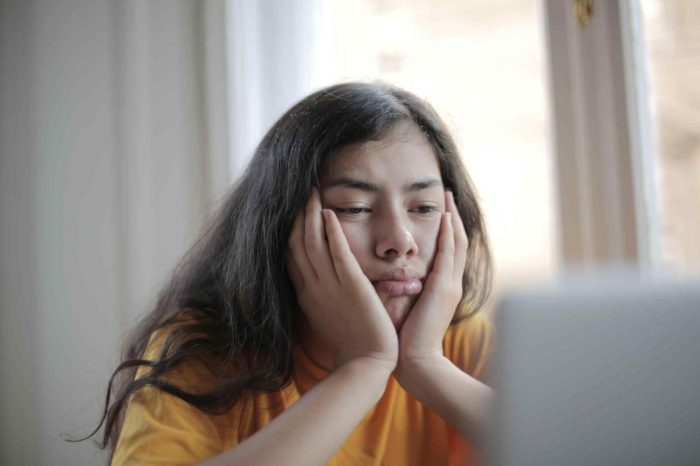Does anxiety make you tired? This exploration delves into the complex relationship between anxiety and fatigue. We’ll unpack the physiological mechanisms, examine the impact on sleep, and explore the mental and emotional aspects of this often-overlooked connection. Understanding the interplay between anxiety and exhaustion is key to managing both effectively.
The article will cover a wide range of factors, from the role of stress hormones to the influence of lifestyle choices. We’ll also discuss strategies for managing anxiety-related fatigue, including self-care techniques and when to seek professional help.
The Nature of Anxiety and Fatigue: Does Anxiety Make You Tired
Anxiety and fatigue often go hand-in-hand, creating a vicious cycle where one exacerbates the other. This interconnectedness stems from complex physiological responses to perceived threats or stressors. Understanding the underlying mechanisms is crucial for effective management and treatment. This exploration delves into the physiological links between anxiety and fatigue, contrasting it with other common causes of tiredness, and examining the impact of different anxiety disorders on energy levels.The constant state of heightened alertness characteristic of anxiety triggers a cascade of physiological changes, which can lead to profound feelings of tiredness.
These changes, often triggered by the release of stress hormones, deplete the body’s energy reserves and disrupt normal sleep patterns. The interplay between anxiety and fatigue is not merely a subjective experience; it’s rooted in demonstrable physiological processes.
Physiological Mechanisms Linking Anxiety to Fatigue
Anxiety activates the sympathetic nervous system, initiating the “fight-or-flight” response. This response, while crucial for immediate survival, involves increased heart rate, respiration, and blood flow to muscles. Sustained activation of this response, as seen in chronic anxiety, leads to significant energy expenditure, leaving the body depleted and fatigued. Furthermore, the constant release of stress hormones like cortisol and adrenaline can interfere with the body’s natural restorative processes, making it harder to recover from daily stressors.
This chronic wear and tear can manifest as persistent fatigue.
Comparison of Physical Effects of Anxiety and Other Fatigue Causes
Fatigue can stem from various factors, including sleep deprivation, illness, and nutritional deficiencies. Distinguishing anxiety-related fatigue from other types requires careful consideration of the accompanying symptoms. While sleep deprivation can lead to physical and mental exhaustion, anxiety often involves a more pronounced sense of unease and apprehension. Similarly, illness can result in fatigue, but the symptoms often include specific physical indicators like fever or pain.
Anxiety fatigue, however, often manifests as a generalized feeling of exhaustion and lack of motivation, coupled with psychological distress. The key difference lies in the underlying cause and the associated emotional and cognitive symptoms.
Types of Anxiety Disorders and Their Impact on Energy Levels
Different anxiety disorders have varying impacts on energy levels. Generalized anxiety disorder (GAD) is characterized by persistent worry and apprehension, often leading to chronic fatigue and difficulty concentrating. Panic disorder can involve sudden, intense episodes of fear, which can result in exhaustion following an attack. Social anxiety disorder can lead to avoidance behaviors and social withdrawal, further contributing to feelings of fatigue and low energy.
Post-traumatic stress disorder (PTSD) can manifest in significant exhaustion, stemming from the recurring and intrusive thoughts and memories associated with the traumatic event. These varying types of anxiety disorders can affect energy levels in different ways, reflecting the diverse nature of the condition.
Role of Stress Hormones in Contributing to Anxiety and Fatigue
Stress hormones play a pivotal role in both anxiety and fatigue. Elevated levels of cortisol, for example, are associated with both the experience of anxiety and the subsequent feeling of tiredness. These hormones increase heart rate and blood pressure, preparing the body for a perceived threat. Prolonged exposure to these elevated levels depletes energy reserves and disrupts the body’s natural regulatory mechanisms, contributing to chronic fatigue.
“The sustained release of stress hormones can impair sleep quality, further exacerbating the feeling of fatigue and perpetuating a vicious cycle.”
Symptoms of Anxiety and Fatigue: A Comparison
| Symptom Category | Anxiety | Fatigue |
|---|---|---|
| Physical | Increased heart rate, rapid breathing, muscle tension, headaches, dizziness, sweating | Lethargy, weakness, lack of energy, difficulty concentrating, decreased physical endurance |
| Mental | Racing thoughts, difficulty concentrating, forgetfulness, irritability, restlessness | Poor memory, decreased mental clarity, slow thinking, difficulty making decisions |
| Emotional | Fear, worry, apprehension, nervousness, panic attacks, feeling overwhelmed | Moodiness, irritability, low motivation, sadness, lack of interest in activities |
The Impact of Anxiety on Sleep
Anxiety often casts a long shadow, impacting not just our mood and focus, but also our sleep. The constant worry and racing thoughts that characterize anxiety can make it incredibly difficult to fall asleep and stay asleep. This disruption to sleep, in turn, can exacerbate feelings of tiredness and worsen the anxiety cycle. Understanding the intricate link between anxiety and sleep is crucial for effective management.Anxiety and sleep are intertwined in a complex feedback loop.
Chronic anxiety can lead to difficulty falling asleep, frequent awakenings, and restless nights. This, in turn, can worsen the underlying anxiety, creating a cycle that can be challenging to break without intervention. The quality of sleep is directly related to the level of anxiety experienced.
The Connection Between Anxiety and Sleep Disturbances
Anxiety’s disruptive effect on sleep is well-documented. The physiological responses associated with anxiety, such as elevated heart rate and cortisol levels, interfere with the body’s natural sleep-wake cycle. These physiological changes make it harder to relax and transition into the restful stages of sleep. Persistent worry and racing thoughts keep the mind active, preventing the relaxation needed for sleep onset.
The physical tension often accompanying anxiety contributes to this difficulty.
How Poor Sleep Can Exacerbate Anxiety-Related Fatigue
Poor sleep, a frequent companion of anxiety, exacerbates feelings of tiredness. When sleep is consistently disrupted, the body’s ability to repair and rejuvenate is compromised. This lack of restorative sleep can lead to increased irritability, difficulty concentrating, and a diminished capacity to manage daily stressors, all of which can worsen anxiety. The resulting exhaustion can create a vicious cycle, where lack of sleep fuels anxiety, and anxiety in turn disrupts sleep.
Effects of Different Anxiety Levels on Sleep Quality
Anxiety levels directly correlate with the quality of sleep. Mild anxiety might manifest as occasional difficulty falling asleep, while moderate anxiety can lead to frequent awakenings and restless nights. Severe anxiety can result in near-total sleep deprivation, characterized by insomnia and a profound inability to obtain restorative sleep. The more severe the anxiety, the more significant the disruption to sleep patterns.
Strategies for Improving Sleep Hygiene in Individuals Experiencing Anxiety-Related Fatigue
Implementing good sleep hygiene practices can be a powerful tool in managing anxiety-related fatigue and improving sleep quality. Consistent sleep schedules, a relaxing bedtime routine, and a sleep-conducive environment are crucial. Creating a calming atmosphere, free from distractions, can significantly enhance sleep. Avoiding caffeine and alcohol before bed, as well as regular exercise, can promote better sleep.
Ever wondered if anxiety drains your energy? It’s a common experience, and often, the underlying reason for feeling exhausted might actually be linked to some of the 9 important productivity habits parents taught when was small. This list of habits, like prioritizing tasks and time management, can unknowingly contribute to a feeling of being constantly overwhelmed, even when not directly related to anxiety.
So, while those habits are great for structure, they can exacerbate anxiety if not managed properly, leading to chronic tiredness.
Addressing the underlying anxiety through therapy or medication can also positively impact sleep.
Table Demonstrating the Relationship Between Anxiety, Sleep Patterns, and Overall Fatigue Levels
| Anxiety Level | Sleep Patterns | Overall Fatigue Level |
|---|---|---|
| Mild | Occasional difficulty falling asleep, some restlessness | Moderate tiredness, manageable daily tasks |
| Moderate | Frequent awakenings, restless sleep, difficulty maintaining sleep | Significant fatigue, difficulty with concentration |
| Severe | Insomnia, near-total sleep deprivation, inability to fall asleep or stay asleep | Extreme exhaustion, significant impact on daily functioning |
Mental and Emotional Aspects of Anxiety-Induced Fatigue
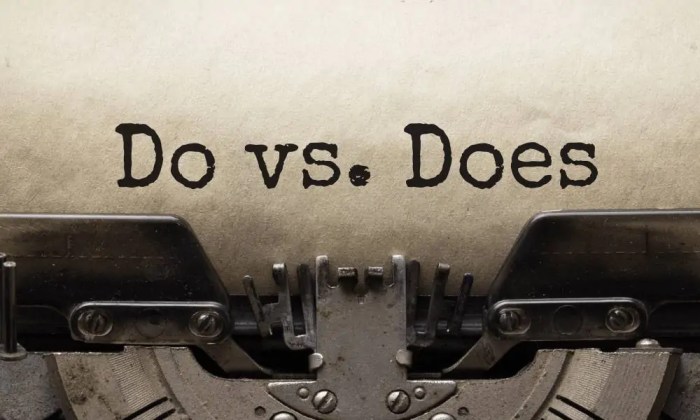
Anxiety isn’t just a feeling; it’s a complex experience that impacts our physical and mental well-being. One significant consequence is fatigue, often far exceeding the physical exhaustion associated with a demanding day. This fatigue often stems from the interplay of our thoughts, emotions, and the way we process the world around us. Understanding these mental and emotional aspects is crucial for developing effective coping strategies.The constant churning of anxious thoughts creates a drain on our mental resources, leaving us feeling depleted and exhausted.
This mental fatigue isn’t just about feeling tired; it’s about a reduced capacity for concentration, decision-making, and overall mental sharpness. The persistent worry and negative self-talk associated with anxiety contribute significantly to this feeling of being overwhelmed and drained.
Cognitive Processes and Exhaustion
Our thoughts directly influence our emotional state, and anxious thoughts can trigger a cascade of negative emotions, perpetuating the cycle of exhaustion. Negative thought patterns, such as catastrophizing (imagining the worst-case scenario) or overgeneralizing (drawing broad conclusions from isolated incidents), amplify feelings of anxiety and contribute to the overall sense of tiredness. For instance, someone worried about a presentation might dwell on potential failures, leading to a feeling of impending doom and exhaustion well before the actual event.
Feeling drained? Anxiety can definitely zap your energy, leaving you feeling utterly exhausted. Sometimes, though, that persistent fatigue might point to a more complex issue, like a problem with your roof. Just as a poorly maintained roof can lead to leaks and damage, unaddressed anxieties can cause a cascade of problems. If you’re struggling to pinpoint the source of your tiredness, consider getting your roof checked out by a professional, like those who specialize in flat roofing repairs.
This way you can focus on the important stuff – managing your well-being – instead of worrying about leaks or damage. Ultimately, tackling both your mental and physical health head-on is key to feeling better, and a reliable professional for why choose a professional for flat roofing repairs can help alleviate that extra stress. It’s a small step that can make a big difference in how you feel, and that goes a long way in managing your anxiety.
This relentless internal dialogue drains mental energy and creates a sense of being overwhelmed.
Negative Thoughts and Worry as Fuel for Exhaustion
Negative thoughts and worries can act as a persistent internal critic, creating a constant state of tension and stress. This mental pressure takes a toll, leading to decreased energy levels and feelings of exhaustion. Examples include ruminating on past mistakes or anticipating future problems, both of which can lead to a profound sense of being overwhelmed and unable to cope.
These thoughts often lead to a cycle of worry, which can make it challenging to engage in activities that would otherwise bring relaxation or pleasure, thus perpetuating the fatigue.
Emotional Regulation and Managing Fatigue
Emotional regulation plays a pivotal role in managing anxiety-related fatigue. Learning to identify and manage anxious feelings is essential. Techniques like deep breathing exercises, mindfulness meditation, and progressive muscle relaxation can help calm the mind and body, reducing the physical symptoms of anxiety and associated fatigue. Developing coping mechanisms, such as challenging negative thoughts and reframing them in a more positive or realistic light, is also crucial.
This involves recognizing the automatic negative thoughts and actively choosing to replace them with more balanced and helpful perspectives.
Mindfulness and Relaxation Techniques
Mindfulness and relaxation techniques are powerful tools in combating anxiety-induced tiredness. Mindfulness practices, such as focusing on the present moment without judgment, help reduce the grip of anxious thoughts and worries. Relaxation techniques, such as progressive muscle relaxation and guided imagery, can promote physical and mental calmness, reducing the physical tension associated with anxiety and the accompanying fatigue.
Consistent practice of these techniques can help individuals develop a greater sense of control over their emotions and thoughts, thus mitigating the effects of anxiety on their overall well-being.
Mental and Emotional Strategies for Coping with Anxiety-Related Fatigue
| Strategy | Description |
|---|---|
| Mindfulness Meditation | Focusing on the present moment without judgment; helps reduce rumination and anxiety. |
| Deep Breathing Exercises | Slow, controlled breathing to calm the nervous system and reduce physical tension. |
| Progressive Muscle Relaxation | Tensing and releasing different muscle groups to relieve physical tension and reduce anxiety. |
| Cognitive Restructuring | Identifying and challenging negative thought patterns; replacing them with more realistic and positive ones. |
| Journaling | Writing down thoughts and feelings to process emotions and gain clarity. |
| Positive Self-Talk | Replacing negative self-criticism with encouraging and supportive inner dialogue. |
| Setting Boundaries | Learning to say no to commitments that overwhelm you and prioritize self-care. |
Physical Manifestations of Anxiety and Fatigue
Anxiety isn’t just a feeling; it manifests in tangible ways throughout the body. These physical symptoms can significantly contribute to the overall feeling of tiredness, often masking the underlying anxiety itself. Understanding these connections can help us better address the multifaceted nature of anxiety-induced fatigue.Physical symptoms of anxiety, like muscle tension and rapid heartbeat, often intertwine with fatigue, creating a vicious cycle.
Chronic anxiety can drain energy reserves and impair physical function, leading to feelings of exhaustion that extend beyond simple tiredness. The body’s response to perceived threats, whether real or imagined, plays a critical role in these physical manifestations.
Muscle Tension and Fatigue
Muscle tension is a common physical response to anxiety. The body’s “fight or flight” response, triggered by perceived danger, leads to increased muscle tension, often holding the body in a state of readiness. This sustained tension, particularly in the neck, shoulders, and back, can lead to pain and stiffness. Over time, this constant state of readiness drains energy and contributes to overall fatigue.
For example, someone experiencing persistent work-related anxiety might find themselves with chronic neck pain and a profound sense of exhaustion, even after a full night’s sleep.
Rapid Heartbeat and Exhaustion
Rapid heartbeat, or tachycardia, is another common physical symptom of anxiety. The body’s increased heart rate, often accompanied by palpitations, is part of the physiological response to perceived stress. This increased heart rate demands more energy from the body, which can contribute to feelings of fatigue and exhaustion, particularly when sustained over prolonged periods. Imagine someone facing a public speaking engagement.
The heightened anxiety and rapid heartbeat leading up to the presentation can leave them feeling profoundly drained afterward, even if the speech itself was successfully delivered.
The Impact of Specific Triggers
Specific anxiety triggers can manifest as noticeable physical exhaustion. For instance, an individual with social anxiety might experience significant physical exhaustion after attending a social gathering, even if they appeared outwardly calm. This exhaustion arises from the body’s sustained effort to manage the anxiety-inducing social situation. Similarly, a student facing a major exam might experience extreme physical tiredness due to the high levels of anxiety and stress leading up to the test.
Chronic Anxiety and Energy Reserves
Chronic anxiety significantly impacts the body’s energy reserves. The constant state of heightened arousal and physical tension depletes the body’s energy resources, making it difficult to replenish them. This prolonged drain on energy reserves can lead to chronic fatigue, affecting daily activities and overall well-being. A person struggling with chronic anxiety might find it difficult to engage in even simple tasks, experiencing constant exhaustion and a reduced ability to perform at their best.
Correlation Between Physical Anxiety Symptoms and Fatigue Levels
| Physical Anxiety Symptom | Description | Fatigue Level |
|---|---|---|
| Muscle Tension | Sustained tightness and pain in muscles, especially neck, shoulders, and back | Moderate to Severe |
| Rapid Heartbeat | Increased heart rate, palpitations, and shortness of breath | Moderate to Severe |
| Sweating | Excessive perspiration | Mild to Moderate |
| Digestive Issues | Stomach upset, nausea, or diarrhea | Mild to Moderate |
| Insomnia | Difficulty falling or staying asleep | Moderate to Severe |
Lifestyle Factors and Anxiety-Related Fatigue
Anxiety and fatigue often go hand-in-hand, creating a vicious cycle. Understanding the role of lifestyle factors in managing this interplay is crucial. A balanced approach encompassing diet, exercise, and hydration can significantly impact both the severity and frequency of anxiety-related tiredness. Adopting these healthy habits can be empowering in breaking free from the grip of chronic fatigue.
Diet and Nutrition in Anxiety Management
Proper nutrition plays a vital role in maintaining mental well-being. A balanced diet rich in essential nutrients can support the brain’s function and contribute to reduced anxiety. Conversely, poor dietary choices can exacerbate anxiety and lead to feelings of fatigue.
- Nutrient-rich foods, such as fruits, vegetables, and whole grains, are essential for providing the body with the vitamins and minerals it needs to function optimally. These foods also offer antioxidants that can help combat oxidative stress, a factor linked to anxiety.
- Limiting processed foods, sugary drinks, and excessive caffeine intake can be beneficial. These foods often lead to blood sugar fluctuations, which can trigger anxiety and contribute to energy crashes, thus increasing feelings of fatigue.
- Incorporating protein-rich foods like lean meats, fish, beans, and lentils can help stabilize blood sugar levels, providing sustained energy throughout the day. This stability is crucial for managing anxiety-related fatigue.
The Importance of Regular Exercise
Regular physical activity is a powerful tool for managing anxiety and fatigue. Exercise releases endorphins, which have mood-boosting effects and can help reduce feelings of stress and tension.
- Physical activity, such as brisk walking, jogging, swimming, or cycling, can improve sleep quality, a critical factor in managing anxiety. Better sleep directly translates to reduced fatigue.
- Exercise can also help regulate the body’s stress response. By engaging in regular physical activity, individuals can build resilience to stress and anxiety triggers.
- Even moderate-intensity exercise can have a significant positive impact. Consistency is key; regular, even short bursts of activity can contribute to improved mental and physical well-being.
Hydration and its Impact on Anxiety and Fatigue
Adequate hydration is often overlooked but plays a critical role in both physical and mental well-being. Dehydration can exacerbate feelings of anxiety and fatigue.
- Staying well-hydrated is essential for optimal brain function. The brain is composed primarily of water, and even mild dehydration can impair cognitive function, potentially contributing to anxiety.
- Dehydration can also lead to fatigue by impacting the body’s ability to regulate temperature and transport nutrients. This can lead to feelings of exhaustion and low energy levels.
- Carrying a water bottle and making a conscious effort to drink water throughout the day can help combat anxiety-related fatigue by promoting better hydration.
Summary of Lifestyle Factors
| Lifestyle Factor | Impact on Anxiety-Related Fatigue |
|---|---|
| Balanced Diet | Supports brain function, reduces oxidative stress, stabilizes blood sugar |
| Regular Exercise | Releases endorphins, improves sleep, regulates stress response |
| Sufficient Hydration | Enhances brain function, improves temperature regulation, prevents nutrient transport issues |
Seeking Professional Help
Facing persistent anxiety and fatigue can be isolating and overwhelming. Recognizing the need for professional support is a crucial step towards managing these challenges effectively. It’s not a sign of weakness, but rather a proactive approach to reclaiming your well-being and improving your quality of life.Professional help offers a structured approach to understanding the root causes of anxiety and fatigue, developing coping mechanisms, and creating a personalized plan for recovery.
It provides a safe space to explore personal experiences and develop strategies for managing symptoms.
Feeling drained by anxiety? It’s a common complaint, and the constant worry can absolutely sap your energy. Interestingly, achieving financial independence, like through the strategies outlined in this guide on how get rich and achieve financial independence , can actually alleviate some of that stress. When you’re not constantly worrying about bills and expenses, the anxiety levels can drop, which in turn, can lead to a noticeable increase in energy levels.
So, while the connection might seem indirect, financial security can significantly impact your overall well-being, including combating the tiredness often associated with anxiety.
Types of Mental Health Professionals
Mental health professionals vary in their expertise and approach. Understanding the different types can help you choose the best fit for your needs. Psychologists, psychiatrists, and therapists each play a distinct role in the treatment process. Psychologists often focus on behavioral therapies, psychiatrists can prescribe medication, and therapists offer counseling and support.
Benefits of Therapy and Medication
Therapy provides a structured environment for exploring the root causes of anxiety and fatigue, identifying triggers, and developing coping mechanisms. Cognitive Behavioral Therapy (CBT) is particularly effective in helping individuals manage anxiety by challenging negative thought patterns and developing healthier coping strategies. Medication, when prescribed by a psychiatrist, can address the underlying physiological aspects of anxiety and fatigue.
It can help regulate neurotransmitters, reducing symptoms and improving overall well-being. Important to note, medication is often used in conjunction with therapy for a comprehensive approach.
Support Options for Anxiety-Related Fatigue
Understanding the various support options available can make navigating the process less daunting. A comprehensive approach often involves a combination of strategies.
| Support Option | Description |
|---|---|
| Therapy (e.g., CBT, EMDR) | Structured sessions with a therapist to identify and address the root causes of anxiety and fatigue, develop coping mechanisms, and improve overall well-being. |
| Medication (e.g., antidepressants, anti-anxiety medication) | Medication prescribed by a psychiatrist to help regulate neurotransmitters and reduce symptoms. It is often used in conjunction with therapy. |
| Support Groups | Provides a sense of community and shared experiences with others facing similar challenges. Offers valuable insights and support from peers. |
| Lifestyle Changes (e.g., healthy diet, exercise, sleep hygiene) | Implementing positive lifestyle changes alongside professional support can significantly impact the management of anxiety and fatigue. |
| Relaxation Techniques (e.g., mindfulness, meditation) | These techniques can help manage stress and promote relaxation, complementing professional support. |
Self-Care Strategies for Managing Anxiety-Related Fatigue
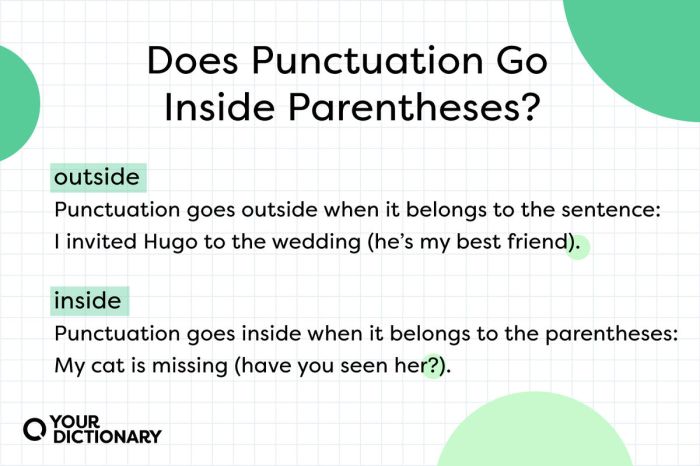
Anxiety-related fatigue can significantly impact daily life, making even simple tasks feel overwhelming. Fortunately, several self-care strategies can help manage these symptoms and improve overall well-being. These strategies are not a cure-all, but rather tools to support you in navigating your anxiety and fatigue. By incorporating these practices into your daily routine, you can gradually reduce the impact of anxiety on your energy levels and overall quality of life.Self-care is not selfish; it’s essential for maintaining your mental and physical health.
By prioritizing your well-being, you’re better equipped to manage the challenges of anxiety and fatigue, and in turn, improve your relationships and productivity. Consistent implementation of these strategies can create a positive feedback loop, leading to greater resilience and a more positive outlook on life.
Simple Self-Care Strategies
Implementing simple, daily self-care strategies can be incredibly effective in managing anxiety and fatigue. These strategies can range from quick exercises to more involved activities, depending on your preferences and energy levels. Finding what works best for you is key to creating sustainable habits.
- Prioritize Sleep: Adequate sleep is crucial for managing anxiety and fatigue. Aim for 7-9 hours of quality sleep each night. Establish a consistent sleep schedule, create a relaxing bedtime routine, and ensure your sleep environment is conducive to rest. Avoid screens before bed, and ensure your bedroom is dark, quiet, and cool. A regular sleep schedule helps regulate your body’s natural sleep-wake cycle, making it easier to fall asleep and stay asleep.
- Nourish Your Body: A healthy diet plays a significant role in managing anxiety and fatigue. Focus on whole foods, including fruits, vegetables, lean proteins, and whole grains. Limit processed foods, sugary drinks, and excessive caffeine or alcohol. These dietary choices can significantly impact your energy levels and overall well-being. Avoid large meals before bed.
- Move Your Body: Regular physical activity, even moderate exercise, can help reduce anxiety and improve energy levels. Engage in activities you enjoy, such as walking, swimming, yoga, or dancing. Even short bursts of activity throughout the day can make a difference. Aim for at least 30 minutes of moderate-intensity exercise most days of the week.
Stress Reduction Techniques
Effective stress reduction techniques can significantly mitigate the impact of anxiety on fatigue. These techniques focus on calming the nervous system and promoting relaxation.
- Deep Breathing Exercises: Deep, slow breaths can help regulate your nervous system and reduce feelings of anxiety. Practice inhaling deeply through your nose, holding the breath for a few seconds, and exhaling slowly through your mouth. These exercises can help calm your mind and body, reducing physical tension and promoting relaxation.
- Progressive Muscle Relaxation: This technique involves systematically tensing and relaxing different muscle groups in your body. This process can help release physical tension associated with anxiety, promoting relaxation and reducing fatigue. Start by tensing a muscle group, holding for a few seconds, and then releasing the tension, noticing the difference.
Mindfulness Practices for Energy Levels
Mindfulness practices can be powerful tools for improving energy levels by reducing the mental chatter and stress associated with anxiety. Mindful activities can help you connect with the present moment, which can lead to a greater sense of calm and focus.
- Mindful Movement: Engage in activities like yoga or tai chi, paying attention to the sensations in your body as you move. Focus on the present moment, the physical sensations, and the rhythm of your movements. This mindful approach can enhance your energy levels while reducing anxiety.
- Mindful Eating: Pay close attention to the sensations of eating, savoring each bite. Notice the taste, texture, and aroma of your food. This practice can help improve digestion and energy levels, reducing anxiety surrounding meals.
Incorporating Self-Care into Daily Routine, Does anxiety make you tired
- Schedule Self-Care Time: Treat self-care as an important appointment, scheduling specific blocks of time for activities like meditation, reading, or taking a relaxing bath. This ensures it doesn’t get pushed aside.
- Break Down Large Tasks: Divide large tasks into smaller, more manageable steps to reduce feelings of overwhelm and anxiety. Tackle one step at a time, focusing on the present moment and feeling accomplished.
- Prioritize Tasks Based on Energy Levels: Schedule your most demanding tasks when you have the most energy. Identify your peak energy times and plan accordingly.
- Be Flexible and Patient: Self-care is a journey, not a destination. Be patient with yourself and adjust your routine as needed. Don’t be afraid to experiment and find what works best for you.
Ultimate Conclusion
In conclusion, the answer to “does anxiety make you tired?” is a resounding yes. Anxiety can manifest in various ways, impacting sleep, physical health, and mental well-being. By understanding the intricate connection between these factors, we can develop effective strategies for managing anxiety-related fatigue. Remember, self-care and professional support are crucial steps in this journey.
